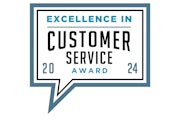How Smart Video Fuels Smart Business
Learn how video solutions with intelligent analysis capabilities can help benefit your drivers and enhance safety programs.
Read more
May 16, 2019
For companies that employ mobile workforces and fleets of vehicles, optimizing fleet management is an important, and often overlooked, business activity that can have a significant impact on the bottom line. This is particularly true for small to mid-sized businesses, where the business owner or general manager often makes the fleet management decisions. But at some point in a company’s growth, the time comes when it makes sense to consider hiring a professional fleet manager. If you’re thinking about upgrading your fleet management system or wondering what a fleet manager does or how to hire a fleet manager, you’ve come to the right place.
In this article, we will examine what it takes to run a successful fleet management program and how to assess the role of a fleet manager. Our goal is that you will come away with a solid understanding of what a successful fleet management plan looks like and be able to answer the question, what does a fleet manager do?
Successful fleet management requires a broad and specialized skill set and a person who can thrive in a fast-paced environment. Great fleet managers are able to confidently make strategic business decisions based on solid data, which best-in-class fleet managers get from fleet management software. You’ll find fleet managers in nearly every industry, and though the details of their roles may vary by organization, their impact consistently extends beyond their own department—from customer satisfaction to total operational productivity.
Let’s “zoom out” of the day-to-day and take a look at exactly what fleet management is, why it’s such a critical part of business, and how it will continue to influence your bottom line.
Fleet management is the practice of managing commercial motor vehicles such as cars, vans and trucks to ensure optimal utilization, fuel consumption and maintenance. Fleet managers may also play a role in helping to coach drivers to improve fleet safety, compliance and liability. In some industries, such as construction and building contracting, fleet management can also include asset tracking and the management of equipment from heavy cranes and bulldozers to smaller equipment such as trailers, generators or specialty tools.
Fleet management aims to maximize efficiency, increase productivity and improve safety for an organization's vehicles and drivers. Often this achieved using a combination of vehicle tracking, reporting on fuel consumption, monitoring of driver behavior and management of vehicle maintenance. All these diverse functions are often managed using fleet management software.
According to Business Fleet, “A great fleet professional is able to lead and coach, not only the fleet team, but also drivers and multiple management levels […] They’re able to inspire a team toward a common purpose or vision.”
A fleet manager with the following qualities and skills will have a better chance at success:
Behind salaries and benefits, fleet-related costs are generally one of the largest expenses at any company that relies on a fleet of vehicles and drivers to get the job done. It makes sense, then, that fleet manager is one of the most important roles for a business with a mobile workforce. It’s their responsibility to ensure fleet vehicles are well maintained and ready for use, and that their company’s drivers are driving safely and in compliance with government regulations such as hours of service requirements and the Electronic Logging Device (ELD) mandate. Fleet managers wear many hats and likely have multiple titles and duties. They work with critical employees across the business and their duties and titles can differ depending on the industry, vehicle types and company size.
Fleet managers play a vital role in maintaining a healthy bottom line because they are responsible for one of the business’s most important cost centers. Vehicle acquisition, maintenance costs, fuel costs, insurance, driver training and ensuring vehicles are compliant with government regulations are seemingly small tasks but can add up quickly, compounding other day-to-day operating costs.
From dispatching technicians more effectively and calculating more efficient routes to promoting positive customer interactions, fleet managers must be able to juggle varying roles and responsibilities and stay cool under pressure. While it’s not necessarily critical for fleet managers to know exactly how to overhaul hydraulic brakes or fix a leaky oil pan, understanding what those fixes require (i.e., cost and downtime,) helps minimize negative impacts on the business and the bottom line. A skilled fleet manager can quickly adapt when vehicles or workers are unavailable, assess the potential downtime and quickly rearrange or reassign jobs while also minimizing disruption to vehicle operations.
Read more about What Fleet Managers (Really) Do by downloading our free ebook.
An effective fleet manager is, not only tactical, but also business-minded and tech savvy. As a fleet grows in size, managers face more challenges as well as more complex concerns, such as:
With their unique insights into fuel efficiency, vehicle maintenance, driver safety, federal and state regulations, and fleet expenses, a fleet manager is one of the most important drivers of your business.
The role of fleet manager has evolved dramatically over time. Though it used to be a job focused solely on managing your fleet’s schedule, today’s effective fleet professional is able to lead and coach, not only the fleet team, but also drivers and multiple management levels. Even more so, they’re able to inspire a team toward a common purpose or vision. For a small business, a fleet manager might also be the service or office manager, so they have other duties to fulfill in addition to managing the fleet. This just adds to their need to be able to work with all facets of the organization and do so nimbly.
A successful fleet manager establishes a cooperative, working relationship with all internal functions within the corporation that are associated with the fleet function:
A good fleet manager requires an aptitude for interpersonal communication in addition to the traditional technical knowledge and organizational skills associated with this role. It takes a lot of people and skill to keep a fleet going so collaborating across these disciplines can mean the difference between on time and late, profit and loss.They need to be nimble and unflappable. Fleet managers deal with varying personalities all day long and typically deal with people who don’t share the same priorities. So for someone to excel in this role, they need to be comfortable being seen as a nuisance or realizing that not everyone will like them, and be ok with that in order to get the job done. This role is far from a popularity contest. It’s important to be forceful, yet tactful and be able to convince people to do things for you that they likely don’t want to do, or in the timeframe you want it.
In addition, fleet managers keep senior management informed on fleet performance, budget requirements, new products, and programs. They understand that most executives are not fleet management experts and they only provide them the fleet data critical to making a decision. One way to do this is to keep fleet reports jargon-free and formatted for quick review and comprehension by senior management.
Great fleet professionals work with suppliers and other partners to optimize their performance. Some employ supply-chain management techniques, such as bringing suppliers together as a team to facilitate communication with each other to provide efficient, low-cost services to the fleet. They set the safety and maintenance standards for the fleet as well as handle all the administrative work.
The impact of data analysis and advanced technology is already being seen across the fleet landscape. Automotive Fleet describes the need for the fluid nature of the fleet manager role as technology shifts: “To navigate the changes, fleet managers will need to draw on their diverse experience in areas like operations sales, HR, finance, facilities and procurement.”
And while technology is meant to simplify, it can also make things overwhelming. Getting up to speed with new innovations, analysis, data, near real-time updates and more, can be daunting, but once a fleet manager understands how to use these advances, it will make their job exponentially easier in the long run.
Fleet management technology can help you:
But beyond all the physical tracking, advances in fleet technology are also instrumental in improving overall communication. Some of the ways it can help are to:
Fleet management solutions can make the life of a fleet manager easier as well as drive overall cost savings and operational efficiencies for any company.
Tags: Billing & Invoicing, Cost control, Customer retention rates, Customer Service, Cybersecurity, Data & Analytics, Dispatching & Scheduling, ELD & Compliance, Field management, Fleet utilization, Fuel cost management, Inspections, Payroll, Performance & Coaching, Revenue & ROI, Routing, Safety, Service level compliance, Team Management, Productivity & Efficiency, Training, Vehicle & asset security, Vehicle Maintenance




Find out how our platform gives you the visibility you need to get more done.
Learn how video solutions with intelligent analysis capabilities can help benefit your drivers and enhance safety programs.
Read moreAre you ready for vehicle tracking? Go through our checklist to learn the signs you’re ready to add fleet tracking to...
Read moreTechnology adoption helps fleets navigate operational obstacles. Learn what fleet management industry technology trends...
Read moreLearn how telematics can lead to operational improvements.
Read more
Get your free 2024 Fleet Technology Trends Report and see how organizations are: